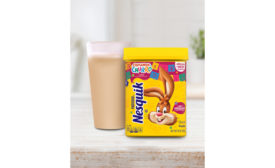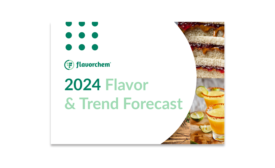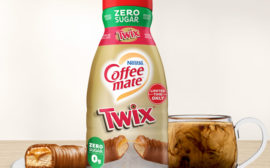Home » Keywords: » flavor trends
Items Tagged with 'flavor trends'
ARTICLES
Scoop, stir into milk and enjoy sweet and spicy flavors of cinnamon and sugar.
Read More
Flavorchem releases Flavor & Trend Forecast
Despite the current inflationary environment, more than three quarters of consumers are excited about new food and beverage trends in 2024, stated Flavorchem,
December 18, 2023
FlavorSum shares 2024 flavor predictions
Although protein doesn’t provide a direct source of energy, FlavorSum research revealed that 45% of North Americans name protein as a path toward endurance and stronger performance.
October 19, 2023
The latest on flavor formulation
Dairy processors must balance taste, better-for-you and cost.
May 26, 2023
Sweeten your cup of Joe with Coffee mate
Two new nostalgic flavors join flavored coffee creamer lineup.
December 13, 2022
Lean into indulgent and comfort food-inspired flavors
Although there’s certainly been a push toward health and wellness in recent years, consumers are still craving nostalgic, indulgent foods and flavors, especially in times of stress.
October 26, 2020
Take plant-based dairy alternatives to the next level
Opt for flavor profiles that mesh with current trends, complement the base.
April 8, 2020
Savory and spicy flavors are making their way into dairy
The trend is being driven by millennials, who view eating as an experience.
July 6, 2018
Adult entertainment: Dairy flavors grow up
As millennials grow older, their palates are growing up with them. New dairy flavors need to reflect that reality
May 10, 2018
Stay ahead of the curve. Unlock a dose of cutting-edge insights.
Receive our premium content directly to your inbox.
SIGN-UP TODAYCopyright ©2025. All Rights Reserved BNP Media.
Design, CMS, Hosting & Web Development :: ePublishing











